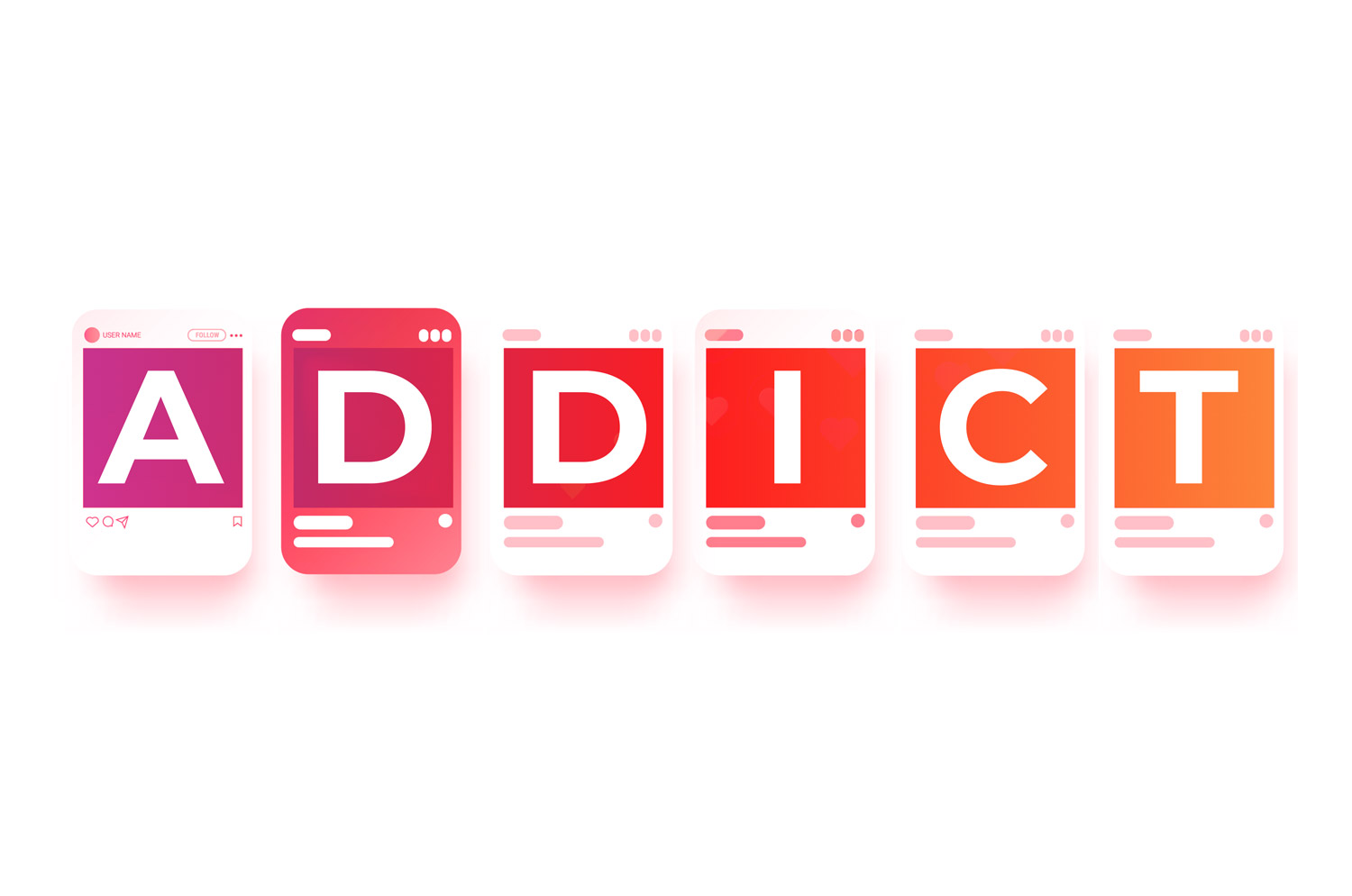
How to Stop Instagram Addiction
Table of Contents
For most people, Instagram is a fun way to share and comment on photos and videos. However, some users – particularly teenage girls – are spending too much time compulsively scrolling while neglecting other interests, schoolwork, relationships, and their mental health and well-being.
In this article, we take a closer look at the social media app to help you understand more about the risks involved and why Instagram is so addictive.
Get immediate help for you or a loved one’s social media addiction. Book a free Gameplan call now to learn if our program is the right fit for you.
Who uses Instagram?
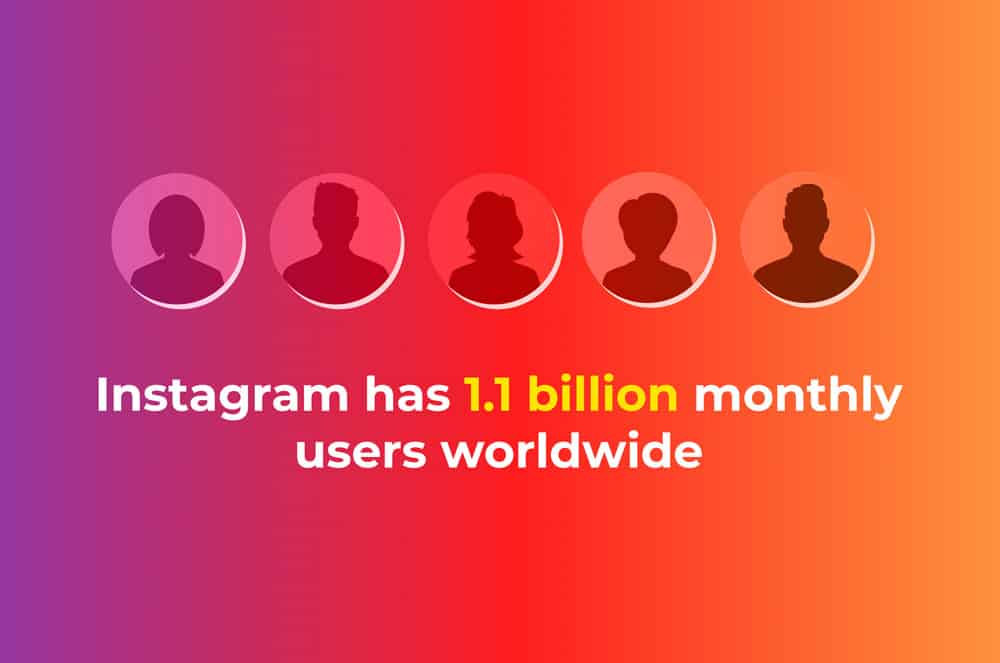
Instagram is a free photo and video-sharing platform. Since its launch by Apple in 2010, and subsequent sale to Facebook in 2012, it has become the world’s fourth most-used social media network after Facebook, YouTube and WhatsApp.
There are currently over 1.1 billion monthly users worldwide and this figure is projected to increase to nearly 1.2 billion monthly users in 2023.
According to a Global State of Digital 2022 report, the majority of Instagram users are Millennials and Gen Z:
- 13-17 years old – 8.5%
- 18-24 years old – 30.1%
- 25-34 years old – 31.5%
- 35-44 years old – 16.1%
- 45-54 years old – 8%
- 55-64 years old – 3.6%
- Over 65 years old – 2.1%.
Across all age groups, the gender split is fairly even: male users – 50.7% versus female users – 49.3%. However, this is not the case in every age category, for Instagram users aged 35+, women outnumber men.
The average user scrolls through the platform for 53 minutes every day which equates to eight months of their life spent on Instagram. 63% of Instagram users check the app at least once a day and 42% open the app multiple times.
Although there are no specific Instagram addiction statistics available, it is estimated that 330 million people worldwide will potentially suffer from problematic internet use in 2022 and up to 10% of people in the US could have social media addiction.
What makes Instagram so addictive?
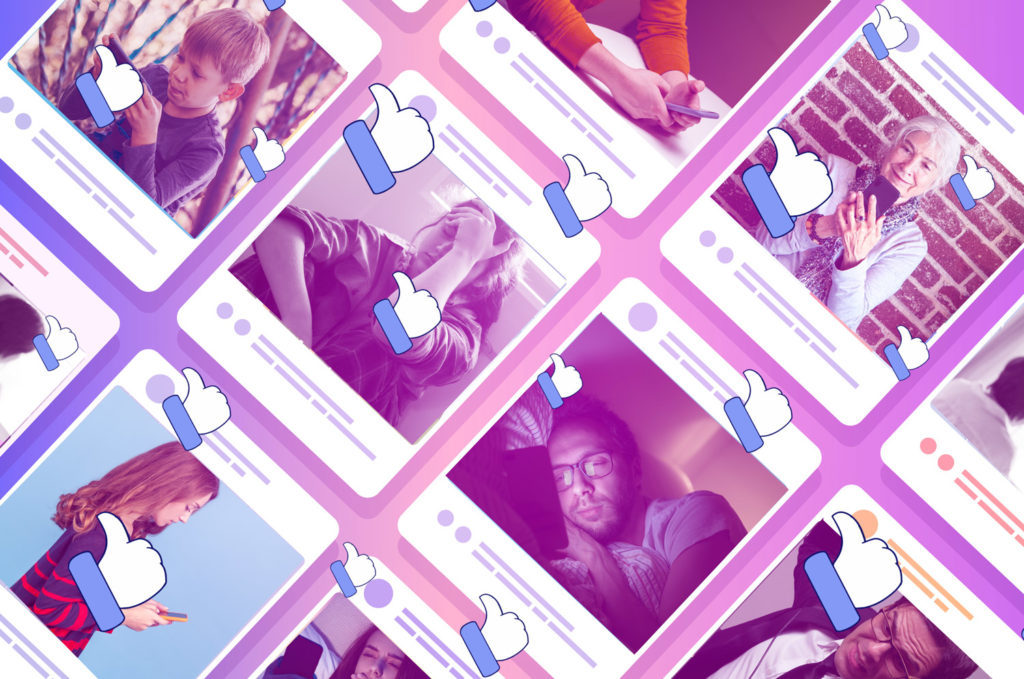
Several ex-employees of Apple, Facebook and Google have revealed that Instagram is designed to be addictive. It uses sophisticated and data-driven methods to entice users to spend as much time as possible on the platform because this generates more advertising revenue. One former Instagram addict explains how “fighting a habit can be very hard, especially if there is an army of programmers, behavior scientists as well as data analysts working against you.”
App developer Peter Mezyk explains that “the success of an app is often measured by the extent to which it introduces a new habit.” He reveals that developers use a three-pronged approach when designing an app: sufficient motivation, an action and a trigger. Instagram ticks all three boxes. This is a way that apps are specifically designed to be dangerous for kids. The motivation comes from the reward system triggered by scrolling through photos and videos – it releases the feel-good neurochemical dopamine that can leave us craving more,. The action comes from being able to open the app and interact with it straight away. And the trigger comes in the form of smartphone notifications and the fear of missing out (FOMO).
Dive Deeper: The Dopamine Theory of Addiction
For some people, like bestselling author Laura McKowen, Instagram can become as addictive as drugs or alcohol. McKowen published an article in The New York Times about how she was addicted to Instagram. Her life became increasingly consumed by the app to the point that it started to harm the relationship with her daughter and boyfriend, so she decided to quit the platform. She describes “the buzz of fear in my stomach, the clutch of anxiety around my throat, the endless procession of negative thoughts, the fractured texture of my attention.”
How Instagram impacts mental health
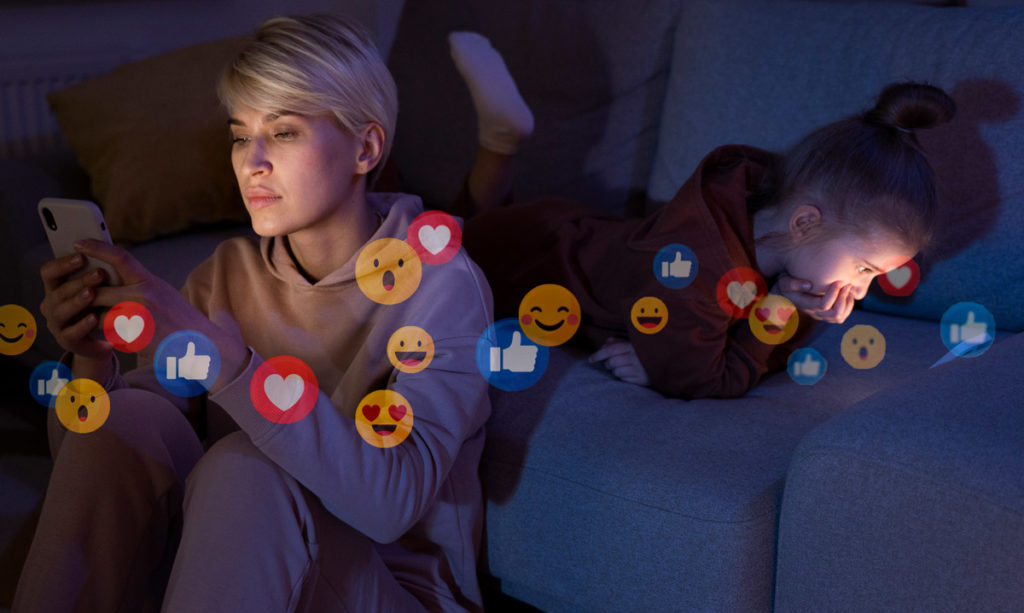
Research has shown that Instagram is associated with positive and negative effects, depending on how it’s used.
According to the Pew Research Center, most teenagers report that social media helps them feel more connected to friends and provides emotional support.
However, Facebook’s internal studies, published by The Wall Street Journal, reveal that Instagram has made body image issues worse for one in three 3 teenage girls.
The American Psychological Association says that “studies have linked Instagram to depression, body image concerns, self-esteem issues, social anxiety, and other problems. By design, the app capitalizes on users’ biological drive for social belonging—and nudges them to keep on scrolling.”
Signs of Instagram addiction
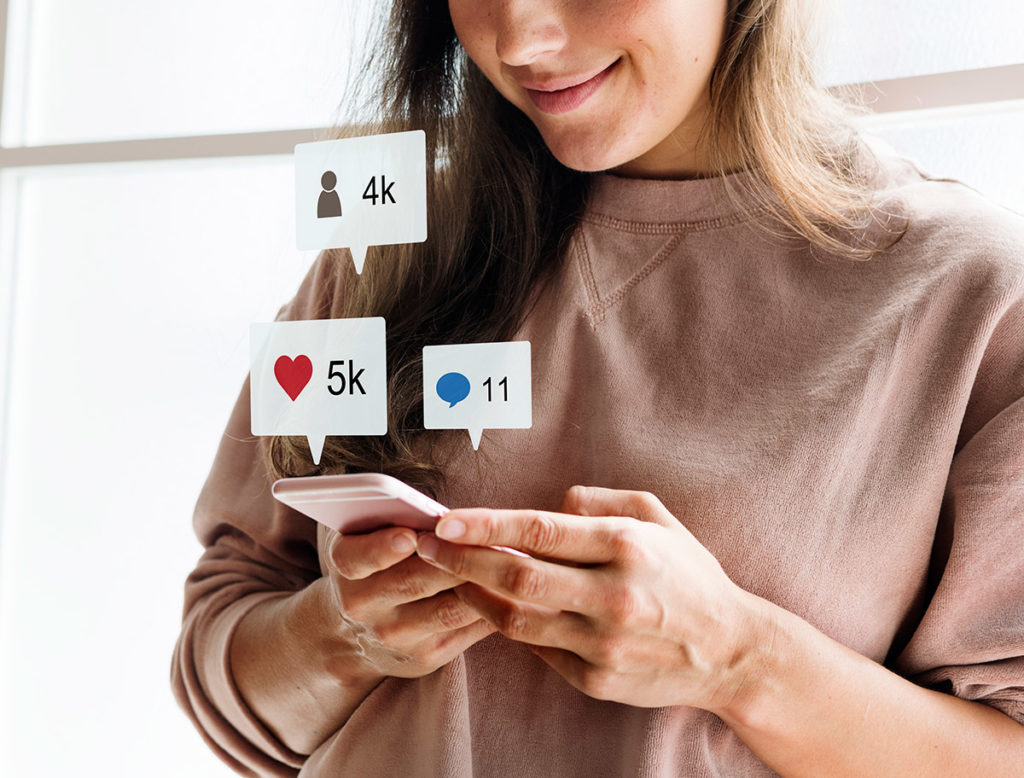
What are the signs that you are addicted to Instagram, or your son or daughter is addicted to Instagram? Here are a few red flags to watch out for:
- Feeling an uncontrollable urge to check and scroll through Instagram.
- Needing to spend more and more time on Instagram to find the same level of pleasure.
- Attempting to control, cut down or stop using the app without success.
- Feeling irritable, restless or anxious when not using Instagram.
- Turning to Instagram to escape from personal problems.
- Devoting so much time to Instagram that it has a negative impact on other important life areas.
- Unable to stop scrolling through Instagram during other activities.
- Losing interest in all other hobbies and pastimes.
- Quickly reverting to excessive Instagram use after a period of abstinence.
The way social media apps, such as Instagram, affect your brain even has a term now called TikTok brain.
Get immediate help for you or a loved one’s social media addiction. Book a free Gameplan call now to learn if our program is the right fit for you.
How to stop Instagram addiction
If you, or someone you care about, is showing signs of Instagram addiction here are some tips to help break the scrolling cycle:
Stop sharing photos and videos
Although Instagram is not just about sharing content (it’s also about seeing what other people have posted), cutting out one of these reasons for scrolling will reduce your time spent on the platform. That’s because if you haven’t shared any photos or videos, you won’t be tempted to keep checking for likes and comments.
Turn off your phone
You may start the day with good intentions not to check Instagram but it’s very tempting to reach for your phone when you receive notifications. However, if you switch off your phone for the day, it’s much easier to ignore it. Choose a non-workday and let close friends and family know an alternative way to contact you in an emergency. You will be surprised how liberating it is to be able to focus on other activities without any distraction.
Delete the Instagram app
If it’s not possible to switch off your phone for a whole day, try deleting the Instagram app on your smartphone. Restricting access to your desktop or laptop will help you be more intentional in your usage and reduce the amount of time you spend mindlessly scrolling and commenting.
Use the ‘Take A Break’ feature
Instagram has recently launched a new ‘Take a Break’ feature to help users spend less time on the app. It gives you the option of receiving notifications to take a break from Instagram after a certain amount of time. Here are instructions for setting it up.
Set a daily Instagram limit
Check out our recommended screen time guidelines to help you decide on a reasonable amount of time to spend on Instagram each day. Then, set a daily limit so you stop using the app when you reach that threshold. Find out how to set a daily Instagram limit.
If you are also addicted to other social media apps such as TikTok you will need to set limits for them as well.
Find new hobbies
Find other hobbies or activities to fill your time so that Instagram isn’t the default whenever you are bored. Our hobby tool has over 70 ideas to inspire you.
Get expert help

If you, or a loved one, are suffering from Instagram addiction, help is available. Our coaching program is designed to help individuals and families regain balance with technology.
Get in touch today to book your gameplan strategy call.
